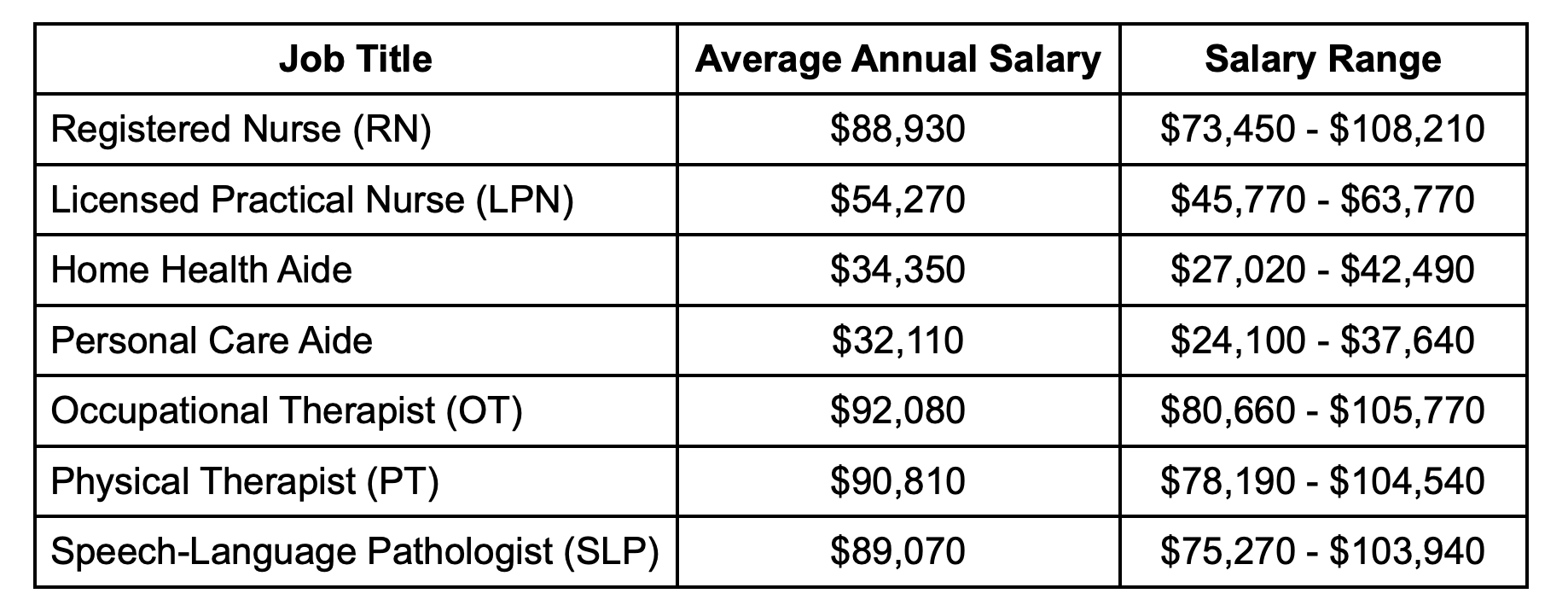In the vast and varied landscape of healthcare careers, long-term care is sometimes overlooked. However, this sector, which provides sustained assistance to individuals with chronic illnesses or disabilities, offers a unique and rewarding path for nurses.
The field challenges nurses’ medical expertise and calls on their deepest reserves of empathy and understanding. Clinicians who choose this path will find it as rewarding as it is demanding.
What is Long-term Care?
Long-term care (LTC) refers to a range of services to meet a person’s health or personal care needs for an extended period. These services help people live as independently and safely as possible when they can’t perform everyday activities on their own.
This care can be delivered through:
- Home-based care: Having nurses or therapists visit patients in their homes is suitable for patients who prefer to receive care in a familiar environment or for those who find it challenging to travel to healthcare facilities. Home care is different from home health.
- Community services (adult day care centers): Community-based facilities that provide care and activities for older adults, typically during daytime hours. They are for older adults requiring supervision and social interaction but not round-the-clock care.
- Assisted living: Residential communities that offer a balance of independence and support. Residents are usually seniors who require assistance with activities of daily living but not intensive medical care.
- Memory care: Specialized residential communities for those with memory problems who require intensive, specialized care.
- Skilled nursing communities: Also known as skilled nursing facilities, these provide comprehensive, 24/7 medical care for individuals with complex healthcare needs. Residents often have chronic conditions, disabilities, or advanced age or diverse demographics, requiring nursing care and medical supervision.
What it takes to work in LTC
Clinical skills for long-term care nurses encompass a broad range of abilities and competencies tailored to the unique needs of elderly and chronically ill patients in long-term care facilities. These skills are essential for providing comprehensive care, promoting residents’ quality of life, and ensuring their safety and well-being.
LTC nurses must possess specific skills to care for residents with complex, long-term health needs. Here’s what’s typically required:
Clinical Skills
- Patient assessment and monitoring
- Medication Management
- Chronic condition management
- Disease-specific knowledge
- Fall prevention and mobility assistance
- Infection control
- Dementia care
- End-of-life care
Communication and interpersonal skills
- Effective communication
- Active listening
- Cultural sensitivity
- Conflict resolution
- Empathy and compassion
- Team collaboration
- Respect for privacy and dignity
Organizational Skills
- Time management
- Record keeping
- Multitasking
- EHR knowledge and competency
Rewards and Challenges
LTC jobs can be gratifying, offering the chance to forge meaningful relationships and make a tangible difference in patients’ lives. However, they also present unique emotional and physical challenges that require resilience, empathy, and a strong commitment to patient care. Understanding this is crucial for anyone considering this field.
Rewards
- Meaningful relationships: One of the most rewarding aspects is the opportunity to develop deep, meaningful relationships with patients over time.
- Making a difference: Significantly improving patients’ quality of life is deeply satisfying.
- Professional growth: LTC offers diverse learning opportunities and the opportunity to broaden clinical knowledge and skills.
- Team collaboration: LTC often involves being part of a multidisciplinary team, offering collaboration and learning opportunities from peers in various specialties.
- Job stability: The demand for LTC care is steadily increasing, providing job security. According to the U.S. Bureau of Labor Statistics, the employment of home health aides is projected to grow more than 20% year over year. Similar projections are seen for other LTC professions like nurse aides and licensed practical nurses.
Challenges
- Emotional demands: Dealing with patients who have chronic illnesses or who are in the last stages of their lives can be emotionally challenging. It requires managing personal emotions while providing compassionate care.
- Physical strain: The job can be physically demanding, involving long hours assisting with patient mobility and other tasks.
- Complex care needs: LTC patients often have complex medical and personal care needs, requiring meticulous attention and patience.
- Dealing with loss: Handling patient loss can be emotionally taxing for caregivers.
- Burnout risk: Due to the high demands of the job, there’s a risk of clinician burnout, making self-care and stress management important.
- Navigating family dynamics: Working closely with patients’ families can be challenging, especially when navigating complex emotional situations or communicating about sensitive health issues.
How much do LTC jobs pay?
The average annual salaries for LTC clinicians range from $32,110 for personal care aides to $92,080 for occupational therapists, as shown in the table below. Demand is projected to grow rapidly, driven by the aging population and increasing need for LTC services.
*Source: U.S. Bureau of Labor Statistics. These approximate figures vary based on location, experience, and long-term care facility.
The strong demand for LTC jobs and the diverse range of career paths available make it a promising field for those seeking a stable and rewarding career.
Daily Life of LTC Nurses
The daily life of nurses in long-term care is varied and centered around providing comprehensive care to their patients. Their day typically involves a mix of medical and personal care tasks. This includes administering medications, monitoring vital signs, and responding to patient health changes. They also document patient care, update records, and plan care with other team members.
Beyond these clinical responsibilities, nurses engage in meaningful interactions with patients, offering emotional support and ensuring their comfort. They also communicate regularly with families, providing updates about their loved one’s care.
LTC jobs offer diverse work-hour options, catering to various lifestyles and preferences.
LTC nursing offers job security in various settings and the opportunity to develop meaningful relationships with patients and their families while delivering care.
- Navigating the World of Long-Term Care: A Guide for Nurses - March 4, 2024




